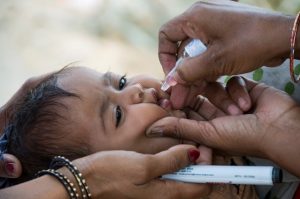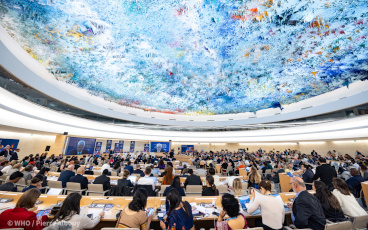IMB to convene in London to assess progress towards polio-free world
The Independent Monitoring Board (IMB) of the Global Polio Eradication Initiative (GPEI) will convene its third quarterly meeting in London, UK, on 30 June-1 July 2011.

Hans Everest / WHO
The meeting follows the Board’s end-March meeting, during which it offered a frank assessment of the global epidemiological situation. While noting considerable achievements since the launch of the GPEI Strategic Plan 2010-2012, the group expressed concern about a number of key risks, including ongoing outbreaks in Chad and Pakistan, as well as the funding gap of US$665 million through end-2012. The Board categorically stated that success in polio eradication is both ‘entirely feasible’ and ‘desperately needed’ and called on the governments of the world to lend the new Polio Eradication strategy the global backing it ‘needs and deserves’.
In addition to reviewing the emergency plans launched in countries deemed to be off-track at the most recent meeting, the Board is on 30 June – 1 July expected to analyse the situations in India, Nigeria and Afghanistan. The Board will also review actions taken by the spearheading partner agencies – WHO, Rotary International, the US Centers for Disease Control and Prevention (CDC) and UNICEF – as well as the Bill & Melinda Gates Foundation, in response to specific recommendations from its March meeting.
The IMB was established in 2010, at the request of the Executive Board of WHO and the WHA, to monitor progress against the milestones of the GPEI Strategic Plan 2010-2012. The report from the Board’s upcoming meeting is expected to be published by mid-July.













